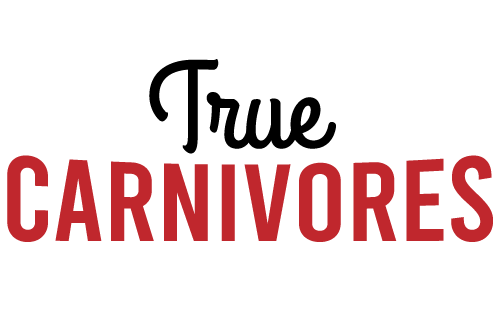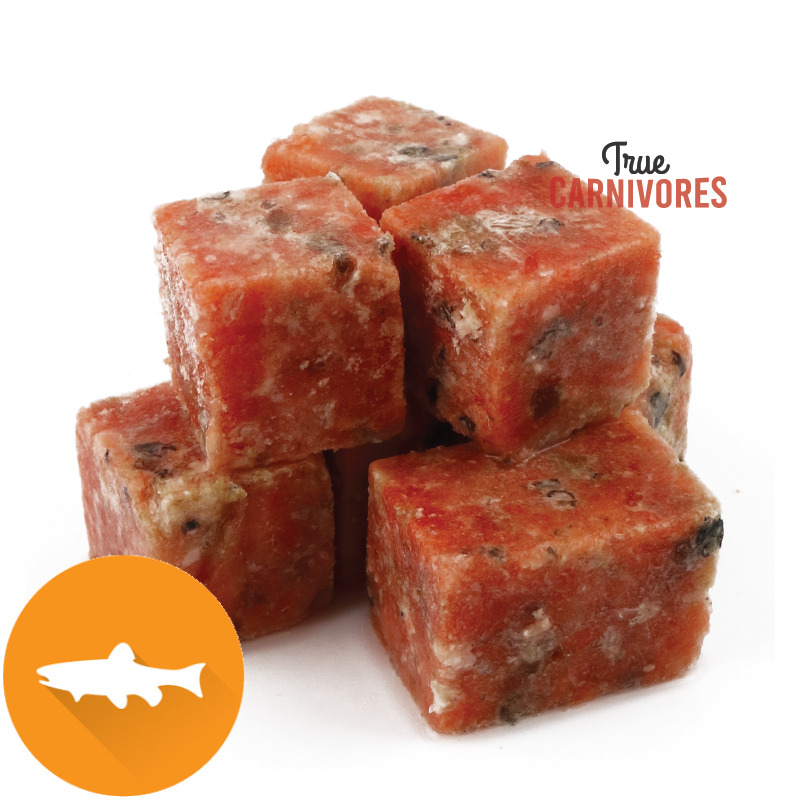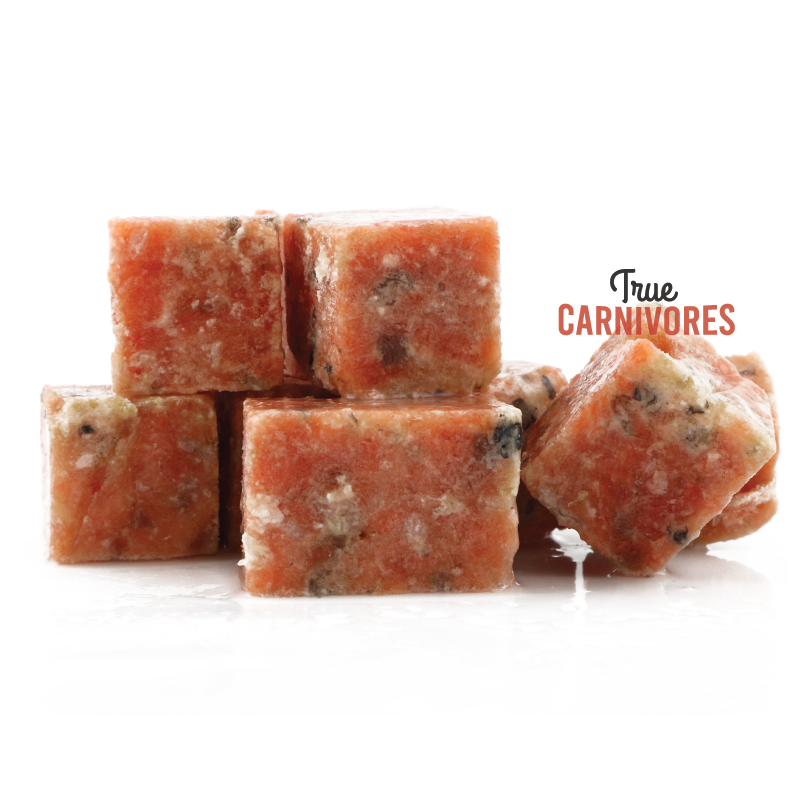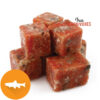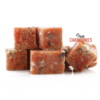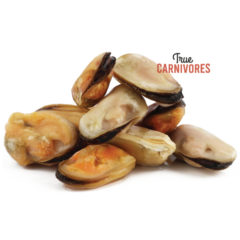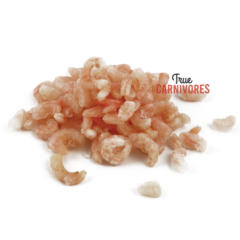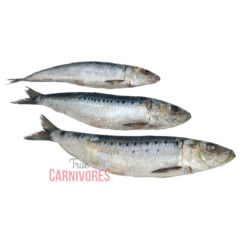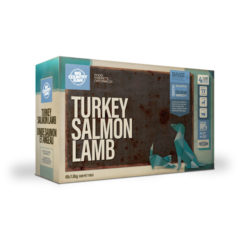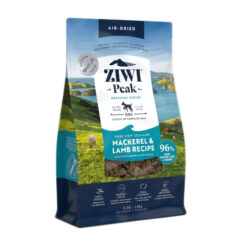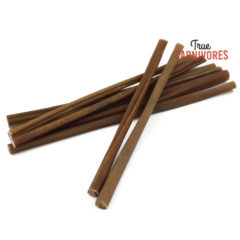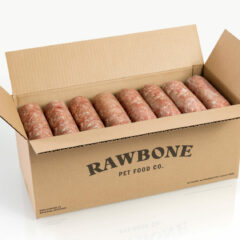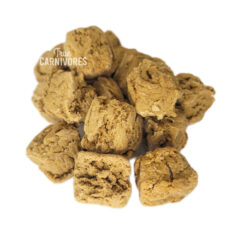Salmon Bites
Salmon Bites are a perfect topper to easily add variety and a nutrient boost to your pet’s regular meals.
Salmon has high levels of Omega-3 fatty acids and Vitamin D. Just one ounce of salmon provides enough Vitamin D to meet a 65lb dog’s daily needs, and 20% of their daily recommended Omega-3 intake!
Nutritional benefits of salmon
- Vitamin D: Salmon is a good source of Vitamin D. Its primary function to enhance intestinal absorption and mobilization. It also plays a vital role in the retention and bone deposition of calcium and phosphorus, making it an especially important supplement for puppies and senior pets.
- Niacin (Vitamin B3): Niacin plays a positive role in heart health and helps prevent heart disease. It also aids in repairing DNA damage and stress responses, which contribute to inflammation. One ounce (28g) of salmon provides more than your pet’s daily requirements of niacin. As niacin is a water-soluble vitamin, there is very little concern with going above your pet’s daily needs, as the excess niacin can be filtered out by the kidneys and excreted.
- Omega-3 Fatty Acids (EPA+DHA): it is recommended that adult dogs get 100mg (0.1g) of EPA + DHA per 10lbs of body weight. Salmon has high levels of Omega-3 fats, with each ounce (28g) containing 140mg (0.14g) of EPA + DHA. Omega-3’s are important for heart health, brain development in puppies and kittens, and for managing inflammation. Most meats that we feed to our pets have unbalanced levels of omega fats, and an excess of Omega-6 and lack of Omega-3 can cause inflammation and allergy-like responses. The meats with the least Omega-3’s are poultry and white fish, and the meats with the most Omega-3’s are grass-fed red meats such as beef, bison, and lamb. But unless your pet exclusively eats grass-fed red meat, they are probably needing extra Omega-3’s in their diet, which is why adding fish or an Omega-3 oil to their diet is so important.
Nutritional Analysis
per ounce (28g)
Calories 21kcal
Protein 20.5%
Fat 4.4%
EPA + DHA 0.14 g
Vitamin D 3.1 mcg
Niacin (B3) 2.2 mg
Pyridoxine (B6) 0.17 mg
